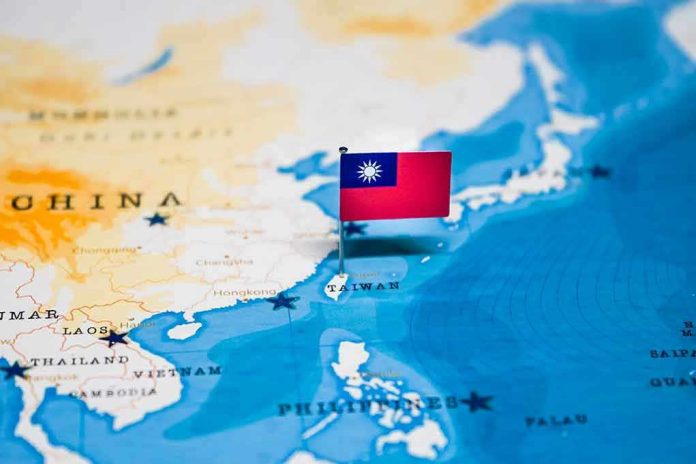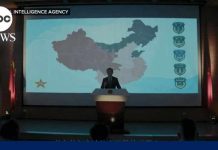
A new assurance from Chinese President Xi Jinping claims no military action against Taiwan during Trump’s presidency, reigniting debates on U.S. strategic ambiguity.
Story Highlights
- Trump claims Xi assured no Taiwan invasion during his presidency.
- Chinese government maintains Taiwan is an internal matter.
- U.S. continues strategic ambiguity in defense commitments.
- Tensions rise over Taiwan’s global strategic importance.
Trump’s Bold Assertion on Taiwan
In a recent CBS “60 Minutes” interview, former U.S. President Donald Trump stated that Chinese President Xi Jinping assured him there would be no military invasion of Taiwan during his presidency. Trump mentioned that Xi and his officials “know the consequences” of such actions, yet he did not specify what these consequences entailed. This assertion underscores Trump’s belief in his personal deterrence over China’s Taiwan policy, a stance he has maintained from his previous tenure.
Strategic Ambiguity and U.S. Defense Policy
Despite Trump’s claims, the U.S. government continues to uphold a policy of strategic ambiguity regarding Taiwan’s defense. This approach involves supplying Taiwan with defensive arms under the Taiwan Relations Act, while maintaining a “One China” policy that recognizes Beijing. The ambiguity serves as a dual-purpose tool to deter Chinese aggression and assure U.S. allies in the region. However, it also leaves room for interpretation, which could lead to miscalculations or escalation in the Taiwan Strait.
Historically, multiple U.S. administrations have avoided explicit commitments to Taiwan’s defense, a policy that both deters and invites aggression. The Trump administration, in particular, increased arms sales and security cooperation with Taiwan, yet Trump’s personal skepticism about a firm defense commitment remains a point of concern for many international observers.
Implications for U.S.-China-Taiwan Relations
Trump’s assertions bring significant implications for U.S.-China-Taiwan dynamics. In the short term, his statements may contribute to heightened tensions and uncertainty in the Taiwan Strait, as all parties navigate the ambiguous nature of U.S. commitments. Taiwan’s strategic importance, particularly its role as a semiconductor producer, adds another layer of complexity, with potential global economic ramifications if conflict arises.
NEWS HEADLINES: Trump says Xi assured him China won’t invade Taiwan during his presidency ‘because they know the consequences’ – One America News Network https://t.co/LL9VCIxzXo pic.twitter.com/u0V3kmjROL
— U-S-NEWS.COM (@us_news_com) November 3, 2025
In the long term, the ongoing strategic ambiguity might embolden China to test U.S. resolve or deter actions based on perceived risks. The key stakeholders, including the U.S. government, the Chinese Communist Party, and the Taiwanese leadership, will continue to play crucial roles in shaping the geopolitical landscape. The situation remains a delicate balance of power, with Taiwan at the center of a potential flashpoint between two global superpowers.
Sources:
How Would the Trump or Harris Administration Approach Taiwan?
Trump says China’s Xi assured him that he won’t take action on Taiwan
Trump says he has assurances Beijing won’t attack Taiwan during his term
Xi Knows the Consequences: Trump’s Cryptic Warning on Taiwan Invasion




